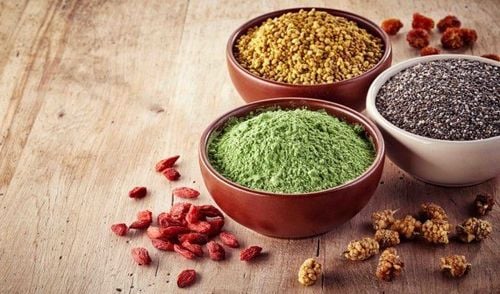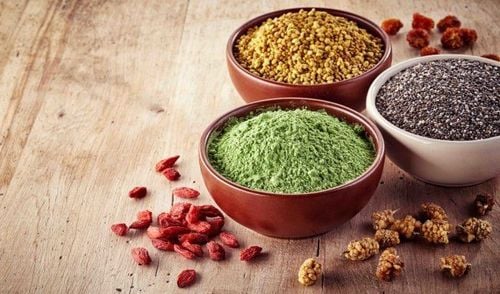This is an automatically translated article.
Fiber is an important nutrient that many people overlook in their daily diet. Fiber is classified as either soluble or insoluble fiber depending on its solubility in water. Insoluble fibers function primarily as agents for the addition of body waste. In contrast, certain types of soluble fiber can significantly affect a user's health and metabolism - as well as weight.1. Fiber helps maintain intestinal bacteria
An estimated 100 trillion bacteria live in the human gut, mainly in the large intestine. Along with other bacteria found in the digestive system, these bacteria are often referred to as the gut flora or gut microbiota.Different species of bacteria play important roles in various aspects of health, including weight control, blood sugar control, immunity and even the maintenance of brain function. Like other organisms, bacteria need a food source to survive in the body.
Soluble fiber passes through the digestive system without changing the structure, from there, the beneficial bacteria in the intestinal tract absorb and turn into energy the body can use. Fiber that is good for gut bacteria is called prebiotic or fermentable fiber.

Chất xơ hòa tan đi qua hệ thống tiêu hóa mà không thay đổi cấu trúc, từ đó, lợi khuẩn trong đường ruột hấp thụ và biến thành năng lượng cơ thể có thể sử dụng
2. Probiotics have anti-inflammatory effects
Probiotics are known for their benefits in supporting chronic inflammatory diseases. Probiotics make nutrients for the body, including short-chain fatty acids that feed the cells in the colon. This leads to a reduction in intestinal inflammation and amelioration of inflammatory disorders.While acute (short-term) inflammation is beneficial for the body to fight off external microbial agents and regenerate damaged cells, chronic (long-term) inflammation is a serious problem. important, have resistance to the body's tissues, causing chronic diseases such as Alzheimer's, heart disease, weight gain and obesity.
3. Viscous fiber
Viscous fiber is a type of fiber found only in plant-based foods. The richest sources include cowpeas and legumes, flaxseeds, asparagus, Brussels sprouts and oats. Dietary changes and fiber supplements need to be done regularly and scientifically. Abdominal pain, cramps, and even diarrhea are common side effects when the body absorbs fiber too quickly.
Đau bụng, chuột rút, tiêu chảy là những tác dụng phụ khi cơ thể hấp thụ chất xơ quá nhanh
4. Does using fiber supplements help with weight loss?
Fiber supplements are usually made by refining viscous fibers from plants. While these fibers may have health benefits, their effectiveness in weight management remains inconclusive. Very large review studies show that neither soluble nor soluble fiber is effective for weight loss. One notable exception is glucomannan, a fiber extracted from konjac roots. Fiber has only modest weight loss effects when used as a supplement.Please dial HOTLINE for more information or register for an appointment HERE. Download MyVinmec app to make appointments faster and to manage your bookings easily.
Reference article: Healthline.com












